Covid Q&A: How do I get a booster in Wales?
- Published
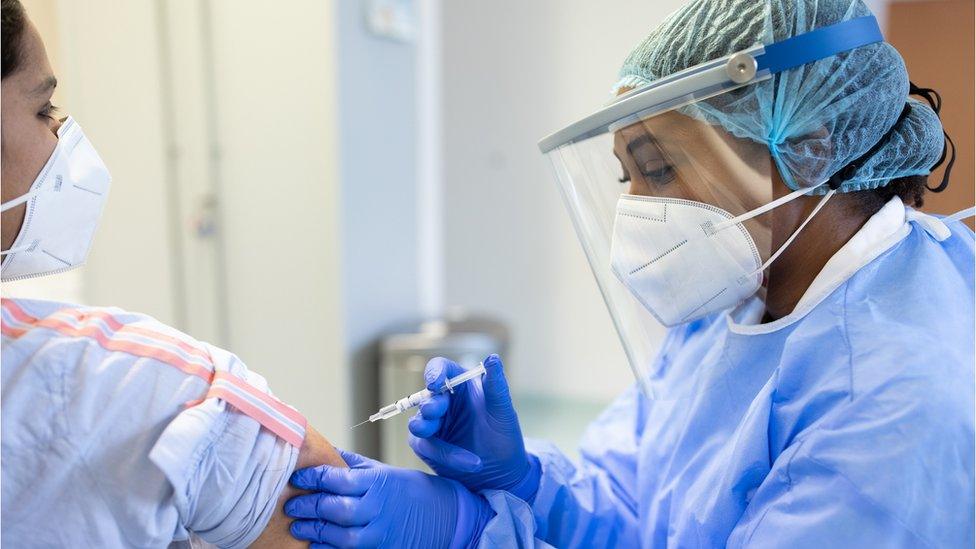
As two doses of a vaccine cannot provide enough protection against Omicron, a booster is "vital"
A tripling of the daily booster vaccination take-up is needed to tackle the Omicron variant, the first minister has said.
Mark Drakeford wants to offer a Covid booster to all adults by the end of the year.
Wales' Health Minister Eluned Morgan said she hopes that everyone takes up the offer of having their vaccine.
How do I get my booster?
The Welsh government said, external: "Please wait to be invited, your health board will contact you when it is your turn."
If you have received your first and second doses, you will be contacted by either text, phone call or letter, three months after your second dose for your booster appointment.
Health Minister Eluned Morgan added: "Some people will be asked to come to a walk-in slot at one of the newly-extended vaccine clinics."
Aneurin Bevan University Health Board, Cardiff and Vale University Health Board, Cwm Taf Morgannwg University Health Board and Swansea Bay University Health Board have said they will be sending out texts and letters offering appointments.
Hywel Dda University Health Board and Powys Teaching Health Board will be sending out texts and letters, as well as having targeted age range drop-ins.
Betsi Cadwaladr University Health Board will send out letters and have an online booking system.
The advice is not to contact your GP or health board to ask about appointments, unless you haven't received your first or second vaccines.
Am I eligible for a booster?
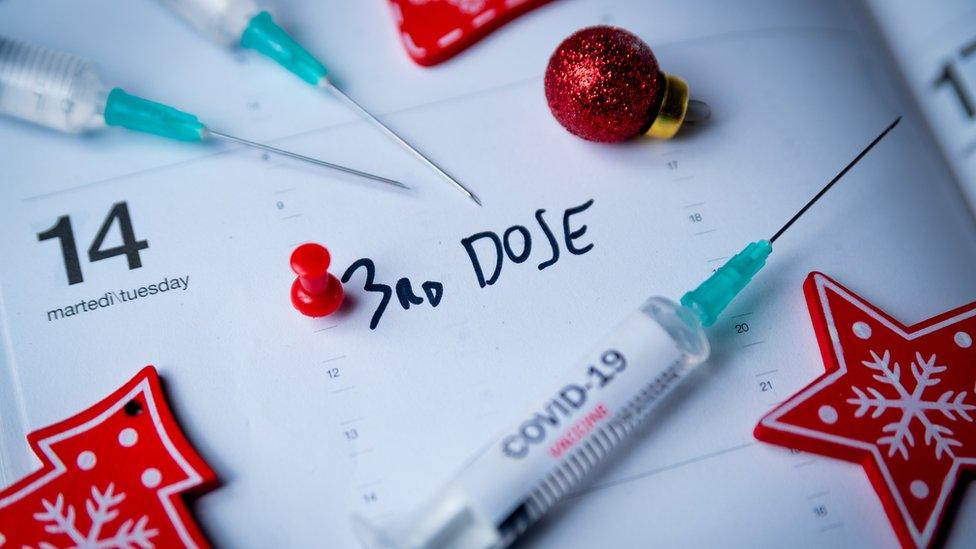
Vaccinations will take place over the festive period apart from Christmas Day and Boxing Day
In Wales, if you're over 18 and it's been three months since your second dose, you can get a booster.
This is in line with guidance from the UK government's vaccination advisers, external, the Joint Committee on Vaccination and Immunisation (JCVI).
Boosters will be offered in order of descending age groups, with priority given to the vaccination of older adults at-risk.
If you have tested positive for Covid, you should wait four weeks (28 days) from the date of the test before having your booster.
Where do I get a booster?
Boosters will be offered at vaccination centres across Wales.
The Welsh government was previously aiming for NHS Wales to give more than 200,000 vaccines a week, external. But in light of the threat from Omicron, this is now being significantly ramped up.
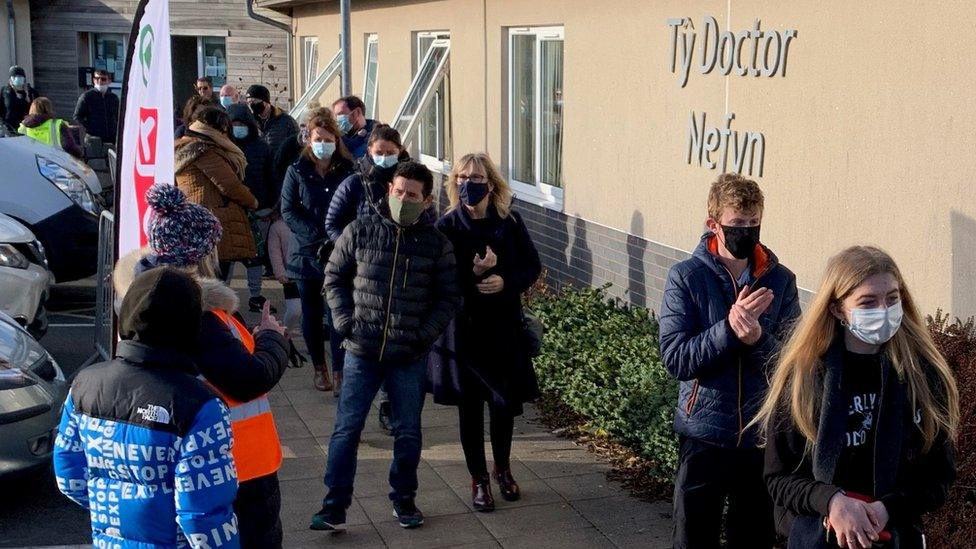
People will be offered their vaccine by phone or text, and as well as appointments there will be walk ins
Which vaccine will I have?
The JCVI has recommended Pfizer-BioNTech and Moderna vaccines.
The JCVI reviewed data on booster responses from different combinations of Covid vaccines. This has shown both these vaccines are well tolerated as a booster dose and will provide a strong immune response.
This is irrespective of which vaccine was given as a primary dose.
Can I walk-in for a booster?
Most people will receive a text, phone call or letter to allocate them a booster appointment but health boards will operate some walk-in sessions on an age basis for anyone who may not have been contacted or who cannot make their allocated appointment.
Welsh government has advised people to check their local health board's website and social media over the coming days for arrangements and eligibility.
When will vaccine centres be open?
They're currently open 09:00 to 20:00, but opening times are being extended to meet demand.
Vaccinations will be given every day over the festive period apart from Christmas Day and Boxing Day.
Are children being given a booster?
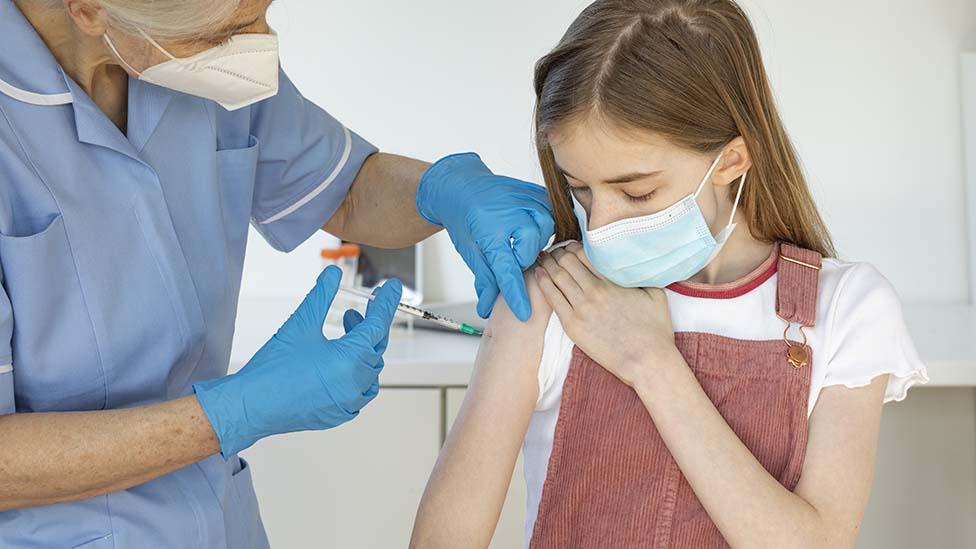
If you're 12-17, you'll be offered a second jab, not a booster
Children aged 12-15 are being offered two doses of the Pfizer jab.
Teenagers aged 16 and 17 can book their second dose of Pfizer, 12 weeks after their first.
No vaccine is currently approved for under-12s in the UK.
What if I'm immuno-supressed?
Anyone over 12, with a severely weakened immune system, has been offered a third vaccine, plus a booster.
Boosters and care homes
If you're over 65 and live in a care home, you will be prioritised at the start of every vaccination programme.
What if I'm homeless?
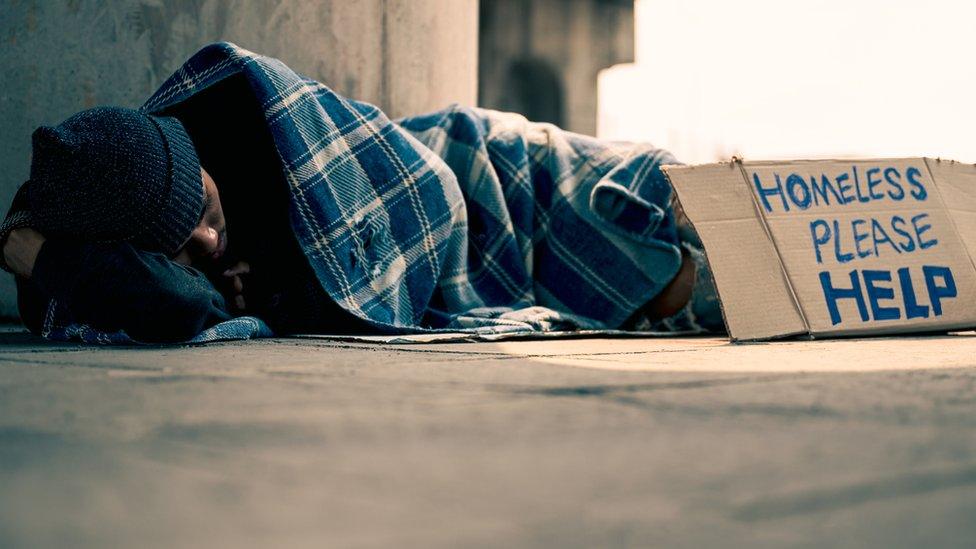
Outreach teams and pop up clinics are available to offer homeless individuals the vaccines
People who are homeless, or have recently experienced homelessness, will be offered a booster dose first, as advised by the JCVI.
Outreach teams and pop up clinics are dispatched to vaccinate.
I'm double jabbed - why do I need a booster?
The evidence so far suggests that Omicron may be more infectious than previous variants, and that existing vaccines may be less effective at stopping it..
However, early studies suggest a booster can prevent around 75% of people getting symptoms.
The World Health Organization (WHO) says that existing vaccines should still protect people who contract Omicron from severe illness.
What if I haven't had my first or second vaccine?
You can still book your first or second jab. You need to wait eight weeks between the first and second.
Adults can contact their local health board, external to book an appointment.
Side effects of boosters?
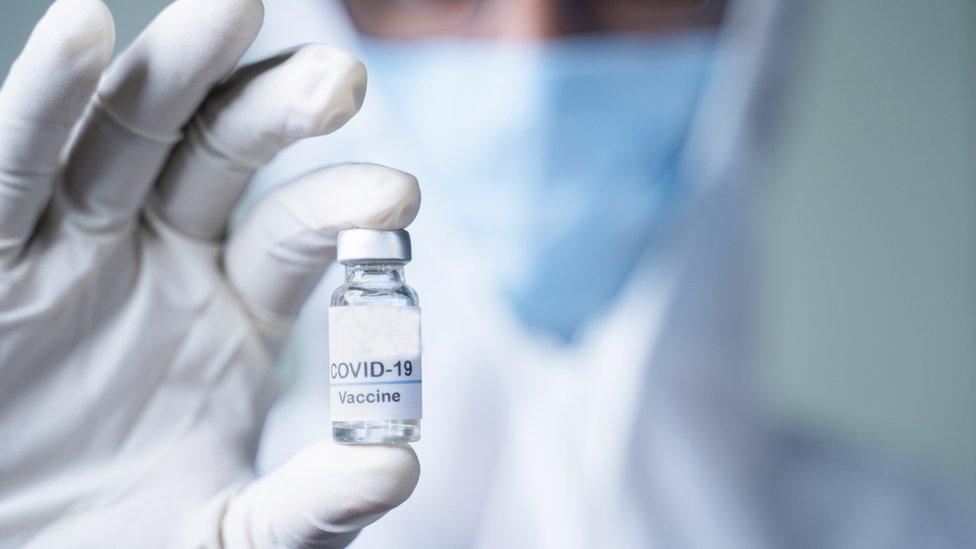
People will be offered either the Pfizer-BioNTech or Moderna vaccine for their booster
The most common ones include a sore arm, headache, chills, fatigue and nausea.
This is part of the body's normal immune response to vaccines and tend to disappear within a day or two.
A very small number of people have experienced a severe allergic reaction, external after the Pfizer vaccine.
You should discuss any existing serious allergies with your healthcare professional before being vaccinated.
Can I volunteer at a Covid vaccination site?
You can volunteer through your local health board. , external
How do I know if I have Omicron?

There are fears Omicron could fuel a rise in hospital cases through the Christmas period
All positive tests are tested to identify probable Omicron variant, which takes a few days.
Immediate public health action is taken on identification of a probable case of omicron variant and contact tracers will inform the individual of this.
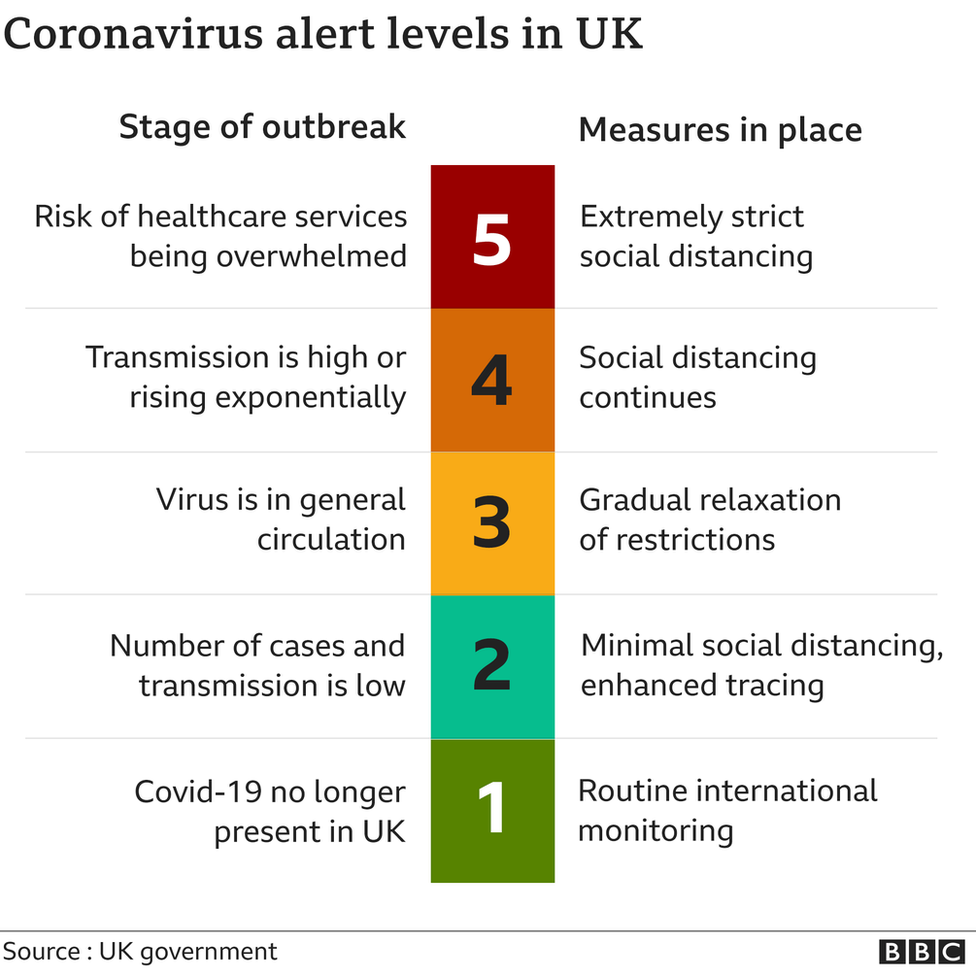
The UK coronavirus alert level has been raised to four over concerns about the variant
- Published14 December 2021

- Published14 December 2021
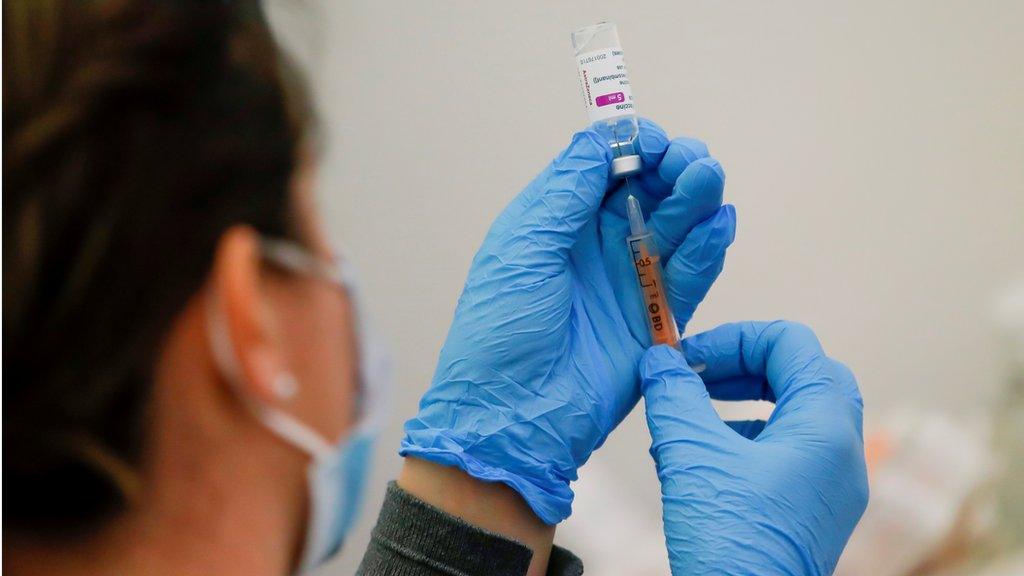
- Published14 December 2021
- Published14 December 2021
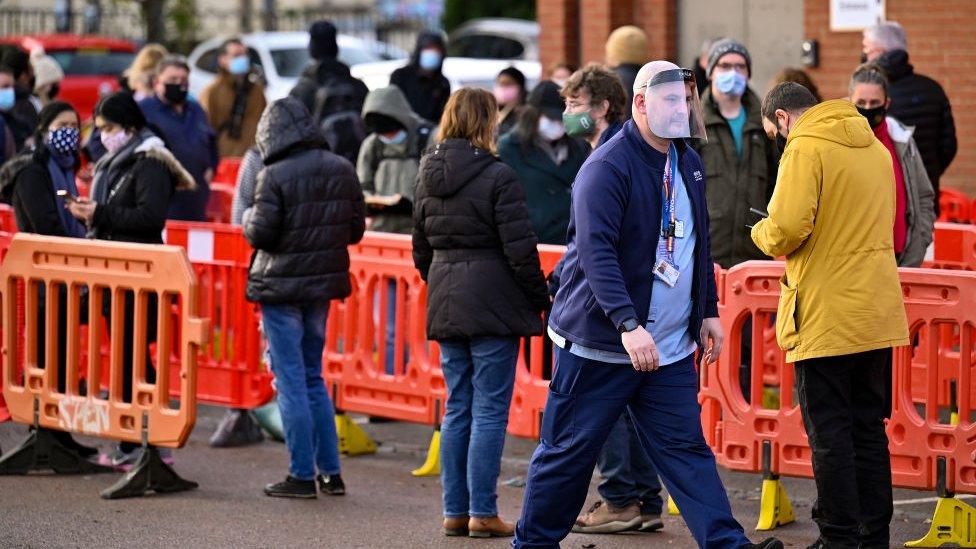
- Published2 April
